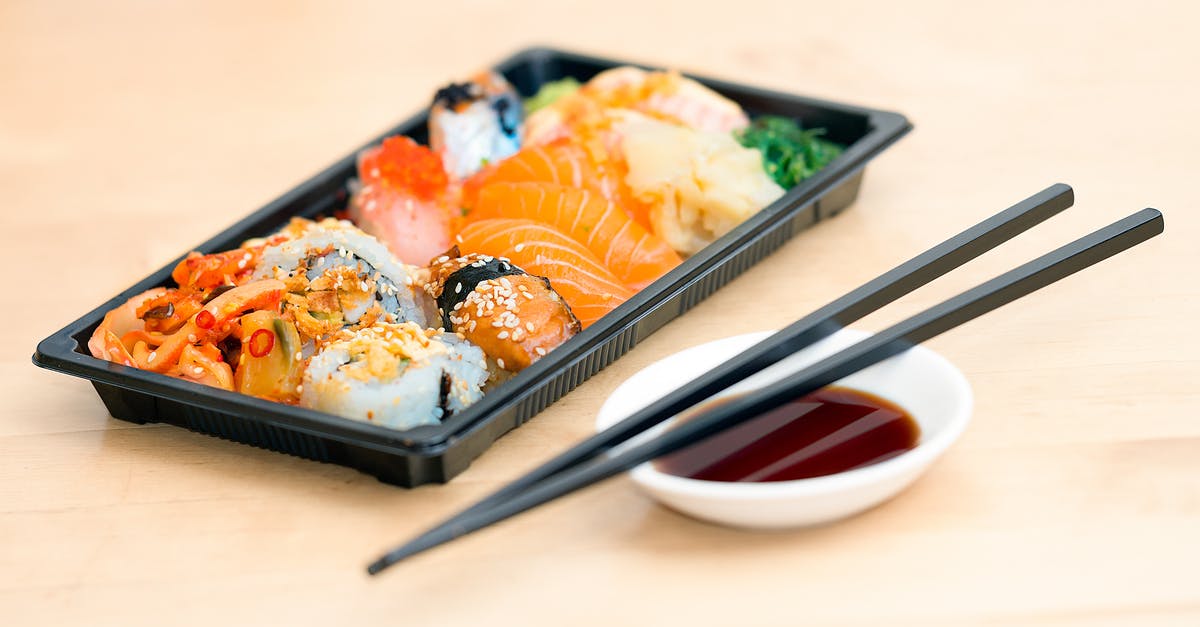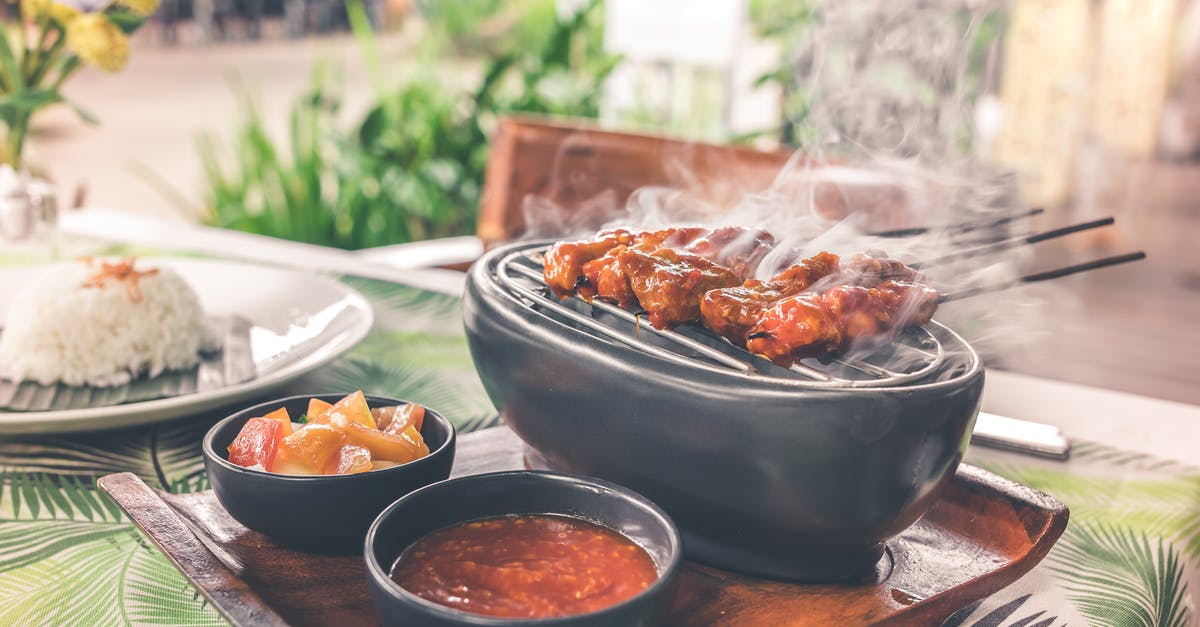How to make thick Asian sauces?

Is there a common ingredient, or cooking technique, that gives sauces such as Teriyaki, General Tsos, Orange Chicken; their thick/syrupy texture?
We sometimes make dishes in a crock pot; we have a recipe for a teriyaki chicken, and another for a honey sesame chicken, but the liquid we end up with is always very watery/liquidy. What can we do to thicken the sauce; so that it gets the texture that I am used to on Asian chicken?
Note that this does not necessarily only apply to Asian cuisine; sauces such as A-1 steak sauce or even BBQ sauce seem similar; though it's quite possible that their thickness is due to completely different reasons.
Best Answer
Thickening agents
To thicken, you would mix in an agent designed to do so. There are many options, but here are some that are directly applicable to Asian cooking:
Corn starch - Works well in small quantities, though I find it has a tendency to turn sauces into jello in the fridge. If you have too much liquid in your sauce and use a relatively large amount of cornstarch, you can have unusual effects when trying to reheat the leftovers. Specifically, cornstarch solutions can suffer from shear thickening making it hard to return a gelatinized corn starch sauce to liquid form. However, this is 'authentic' in the sense that it is probably what is in your neighborhood General Tso's purveyor's recipe.
Xanthan gum - Works well in very small quantities; it doesn't take much to thicken a sauce. I don't think there is anything very Asian about this ingredient, it's more of an 'industrial' food additive. Still, it is flavorless so won't impact the taste of your sauce. Xanthan gum has the opposite effect of cornstarch, namely shear thinning. I don't find the shear thinning to be an undesirable trait.
Potato or Tapioca starch - These are my personal preference. These starches act more like flour, in my opinion, and since I have more of a cooking background with gravies and roux, I like these options. To a certain extend, you will have the same shear thickining effect that you will get from corn starch, but I've never gelatinized a sauce with either of these ingredients, so that drives my personal preference.
The above listed don't need more than a few minutes at heat to achieve their thickening effect. Be sure to stir in completely and be patient; if you add thickening agents in haste you can easily end up with too much (again, I find this to be a big problem with cornstarch). Also, for all of them, be sure you don't have too much liquid in the first place; a sea of sticky sauce can often be overpowering.
There are plenty of other thickening agents in common use (flour/roux, egg whites, pectin, gelatin). You could give any of these a try, but I wouldn't consider them "Asian" in any way, so I don't feel like these answer the question.
Pictures about "How to make thick Asian sauces?"



Quick Answer about "How to make thick Asian sauces?"
What do Asians use to thicken sauces?
Though it's virtually flavorless, cornstarch is easily one of the most vital ingredients in a Chinese kitchen, with multiple uses, including thickening sauces, gravies, and soups.How do you make a sauce thicker?
The most readily available sauce-thickener is flour. For a too-thin sauce, try adding a slurry (equal parts flour and water, whisked together) or beurre manie (equal parts softened butter and flour, kneaded together to form a paste)\u2014both are ideal thickeners for rich and creamy sauces, such as steak sauce recipes.What thickens a Chinese sauce?
Cornflour is used regularly in Chinese cooking to thicken the sauces of your dishes. In our recipes we have written that you need to add in 2 tablespoons of cornflour mixture. Cornflour mixture in this case refers to 1 tablespoon of cornflour mixed with 2 tablespoons of water.How can I thicken my Asian sauce without cornstarch?
Rice flour: Another good substitute for cornstarch is rice flour, a common gluten-free ingredient in many Asian dishes. First, you should dissolve rice flour in cold water to make a paste before adding it to sauces. Tapioca starch: Tapioca starch, also known as tapioca flour, is flour made from the cassava root.Cook Any Asian Dish with these Sauces | HONEYSUCKLE
More answers regarding how to make thick Asian sauces?
Answer 2
Many such sauces include a thickening starch, like corn starch. This can either be mixed with some of the cold liquid and stirred into the hot, or used to coat ingredients prior to adding liquid (with slightly different results).
In a crock pot you can do this at the beginning, or when everything is cooked, a few minutes before serving. Some starches (e.g. wheat flour) need more cooking than others, so need to go in early. You may want to use a little less liquid in the first place if you're adapting a recipe.
Answer 3
The standard would be rice flour, where a thickening agent is actually used. Some of the sauce you mentioned in the original post are thick because they have been reduced rather than because they've had a thickening agent added.
Answer 4
Red or sweet bean paste is naturally thick.
Answer 5
The Red Lotus sweet rice flour is a great sauce thickener. It's may need to be smoothed with a mixer. It tastes sweet and even most sauces well.
It's gluten free and you don't get the wheat taste, that's a big plus!
Sources: Stack Exchange - This article follows the attribution requirements of Stack Exchange and is licensed under CC BY-SA 3.0.
Images: Pixabay, Artem Beliaikin, Artem Beliaikin, Alex Green
